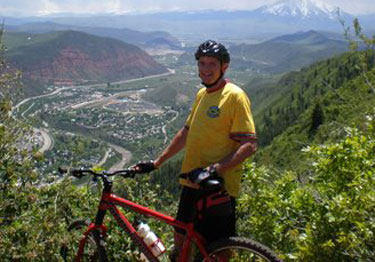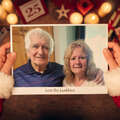Steve’s Top 7 Tips For Patients!
By Adam Pick on July 3, 2010
I just received this insightful email from Steve, who recently had heart valve surgery. I thought you might really enjoy it… So, here it is:

Steve Miller – Heart Valve Replacement Patient
Dear Adam – Congratulations on getting that article published in The Chicago Tribune! Also, thank you for writing such an informative and helpful book. I am a nine week recipient of a St. Jude’s mechanical aortic valve. It is working well and I am on my way to full recovery.
I would like to share the following tips, thoughts and ideas – many of which you previously mentioned – to stress their importance to fellow patients.
- Get a second opinion. It was amazing to me that 35% of heart valve patients DO NOT get a second opinion. Get one, if only for your piece of mind. It’s not a hangnail that’s being fixed!!
- Research and interview! Be picky (no pun intended) about who does your surgery and where it’s done. In rural western Colorado, I highly recommend Dr. James Narrod and St. Mary’s Hospital in Grand Junction.
- This surgery is a big deal. Recovery for me has been more difficult than I expected. I had a minimally invasive sternotomy. Years ago, I had a fractured sternum in a car accident and thought this recovery would be similar – wrong!! Allow yourself more time than you think for recovery.
- Don’t be afraid to investigate mechanical valves. The one I have has been used for 25+yrs with little problems. Everyone is different but Coumadin (blood thinner) has not been a big deal for me.
- Get sleep! An interesting phenomenon happened to me for maybe 2-3 weeks after surgery. I was afraid to fall asleep for fear that I would not wake up. A nurse stressed to me that I needed my sleep for my body to recover. It eventually passed. If you experience this, talk to your doctor. He can give you anti-anxiety medicine that will help.
- Sign up for cardio-rehab. It is essential for your timely recovery. Cardiac rehab has been a great experience for me.
- Appreciate your medical team. Thank God we live in an era with some great doctors and wonderful technology that can fix your heart.
I am 63 yrs old. I mountain bike, hike, fish, golf, hunt and play with my 4 year old granddaughter and I intend to “keep ticking” for years to come.
Finally, your heart valve surgery book was extremely helpful in my decision making process and in what to expect before and after surgery.
Thanks again!
Steve Miller
Glenwood Springs, Colorado
|
Merilee Brown says on July 3rd, 2010 at 3:41 pm |
|
Thank you for the insightful comments. All of this is helpful. |
 |
|
Don Henry says on July 3rd, 2010 at 3:43 pm |
|
It is interesting that Steve decided on the mechanical valve at age 63. Most surgeons will recommend the tissue valve at this age. I do think Steve made the right choice for him since a tissue valve will only last between 10 and 15 years. This will most likely be Steve’s last surgery since the mechanical valce will most likely last 25 years or more making Steve at least 88 before another surgery would be necessary. I agree that this is a personal decision. I had a tissue valve when I was 55 and I am now 65 and in my 11th year with this valve, so I will be making a decision in the near future as to which valve I will elect to get for my second surgery. I have not made up my mind yet. Good luck to Steve . My main concern with the mechanical was being on blood thiners for the rest of my life and it is good to hear that this is not a problem for steve. Don |
 |
|
Robin Hirsch says on July 3rd, 2010 at 4:28 pm |
|
Frame of mind is vital. Prepare yourself mentally and focus on a good outcome. |
 |
|
Todd Kaitis says on July 3rd, 2010 at 4:44 pm |
|
My ex wife ran a coumadin clinic for a orthopedic group of doctors and most patients on the drug were less eneregic and were usually not better off than those not on the drug. I am scheduled for an aortic valve replacemant in August and I am up in the air as to what type of value to go with. I have not yet spoken with the doctor about what type, but was told he will decide before the surgery. I am 60 yrs old and very active and the blood thinner concerns me. Any help in this matter would be appreciated. Your book was great, really enlightened me and was extremely helpful! |
 |
|
Paul klaassen says on July 3rd, 2010 at 4:47 pm |
|
Steve that is an excellent summary of what every valve replacement patient should know. I did precisely what you recommend when I had my surgery last year. I hope that my mechanical valve will last for the rest of my life, and don’t find anti-coagulation to be a problem at all, especially since I began home monitoring my INR and dosing myself. |
 |
|
Dana Robertson says on July 3rd, 2010 at 6:52 pm |
|
Great comments and very helpful. I have surgery coming up in 2 weeks at the Mayo Clinic, and it was by getting a second opinion that I chose that facility and the surgeon. I’m headed for probably a mitral valve replacement, repair of trisucpid, and hopefully a fix for the atrial fib. Already on coumadin, so that drug I already know and do ok on it. |
 |
|
Adrian B. says on July 3rd, 2010 at 11:34 pm |
|
Steve’s list makes sense. I did not follow all the steps he outlines, particularly the second opinion, though there was a difference of opinion between my cardio and the surgeon, that caused me to change my mind from mechanical to bio. I live on an island in the Caribbean where we now have 1 cardiologist. Fortunately for us he, Roy Flood, is great! In my case, action was required fairly quickly. I was referred to Dr Louis Kanda at Washington (DC) Hospital Center for surgery. Louis Kanda is a fine man, excellent surgeon, and shares his expertise at clinics and hospitals around the world. He disagreed with Flood’s suggestion of the mech valve, even tho I was 60 at the time. In his experience bio valves were headed for 20 yr life and his biggest concern was that living where I did, and the fact that I travelled frequently to rural Africa (as he does, he is Congolese) that a bio valve would be safer. His concern was that if a mech valve fails, you need immediate assistance from a well equipped emergency room with full cardiac capability. Those do not exist in the places where I live and frequently visit. He said that if a bio valve fails, it will go gradually, kind of like your heart now, and you will have time to seek help. That did it for me. I am 2 yrs in with my second life, doing great except for my gall bladder and appendix removals last year, and about to start a new career. |
 |
|
debbie says on July 4th, 2010 at 1:32 pm |
|
Okay, either that’s a blurry photo or you look great for your age…and while this may not come out properly, in a sense I’m glad you said you were not pleasantly surprised by your recovery. I’e had ups and downs, and am no where near as active as you are unfortunately (before or after surgery) so it’s weirdly comforting to hear we are all different even if we are healthy. |
 |
|
Kerrigan says on July 4th, 2010 at 3:40 pm |
|
All good advice, especially the cardo-rehab work. |
 |












